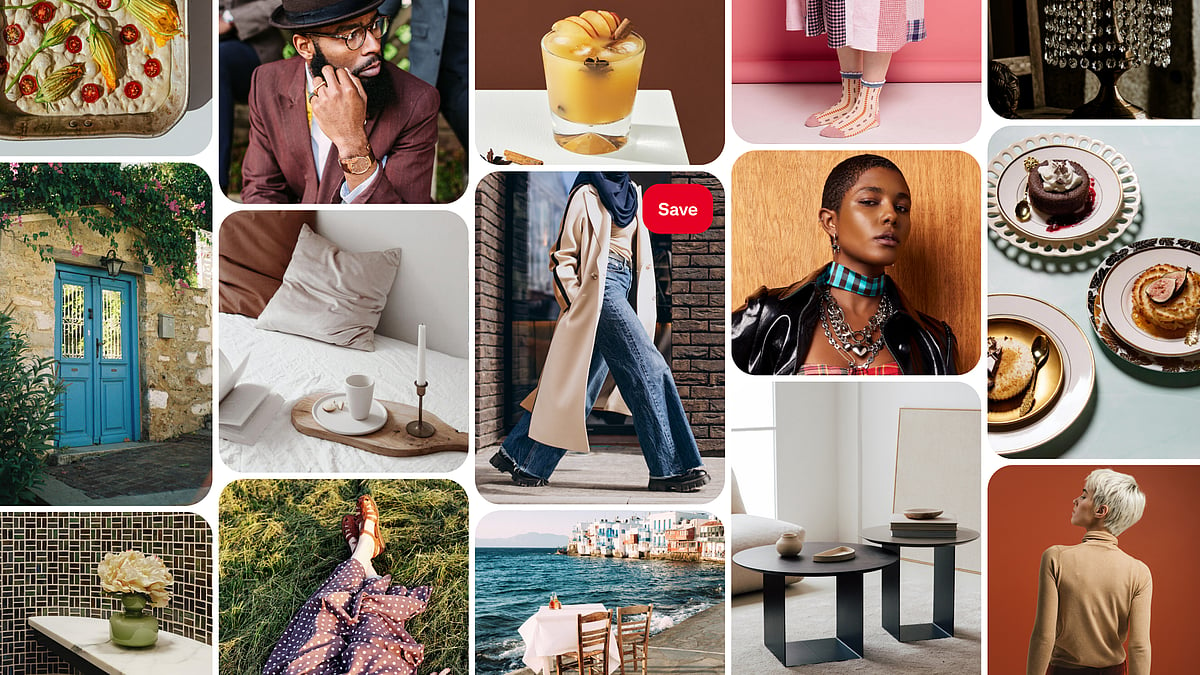Dubai: Pinterest is making its most aggressive push yet into the Gulf market by hiring its first employee in the UAE as part of a major push into the Gulf market, where the platform's revenue has surged 65 per cent in the past year, according to a top company executive.
Bill Watkins, Chief Revenue Officer at Pinterest, told Gulf News that the company's Gulf expansion plans during his first visit to the region, signalling what he described as a clear priority for the platform's international growth strategy.
Revenue surge drives Gulf investment
The timing of Pinterest's regional focus coincides with explosive growth across its Rest of World segment, which includes UAE and Saudi Arabia markets. In Q2 2025, Rest of World revenue jumped 65 per cent year-on-year, far outpacing the company's overall 17 per cent revenue growth to $998 million.
"The Gulf isn't just attractive, it's essential for Pinterest's international growth strategy," Watkins said, noting that 80 per cent of the platform's 578 million monthly active users are now international.
The company's strategic shift under CEO Bill Ready over the past three years has repositioned Pinterest from a place "where it was hard for people to shop and take action, to one where we can offer a full funnel advertising solution," Watkins explained.
Gen Z fuels platform growth
Pinterest's appeal to younger users makes the Gulf particularly attractive. Gen Z now represents over 50 per cent of Pinterest's global userbase and remains its fastest-growing demographic—a rare reversal in consumer technology where platforms typically age up rather than down.
"Our platform is aging down, almost unheard of in consumer tech," Watkins said, highlighting that Adobe research shows 39 per cent of Gen Z searches now start on Pinterest instead of Google.
The Gulf's young population aligns perfectly with this demographic shift, creating what Watkins characterised as "our best product market fit in years."
AI learns Gulf shopping preferences
Pinterest's AI-powered Taste Graph is adapting to regional consumer behaviour, with search trends revealing the platform's growing resonance in Gulf markets. Recent data shows abaya searches up 3.7 times year-on-year, workplace design searches surging 1,209 per cent, and searches for "hijabi outfits classy" climbing 176 per cent.
"Whether someone in Dubai is exploring traditional Arabic calligraphy or modern minimalist home design, our AI serves them based on their actual saves and searches, which naturally reflect their cultural context," Watkins explained.
The platform's visual search capabilities address a key gap in how consumers discover products. "When someone in Dubai sees a beautiful majlis but can't describe the exact style in words, they can upload that image and instantly find similar furniture, textiles, and décor," he said.
DMS partnership
Pinterest's expansion into UAE, Saudi Arabia, Qatar, Bahrain, and Algeria is enabled through a partnership with DMS, a Choueiri Group brand, which provides crucial local market expertise.
"DMS acts as a regional bridge, ensuring Pinterest's advertising products align with market behaviour and advertiser needs," Watkins said. A joint team works directly with local clients to optimise campaigns and understand platform performance.
The collaboration has proved instrumental in accelerating advertiser education and adoption across Gulf markets, though Watkins declined to disclose specific regional revenue targets.
What sets Pinterest apart?
Watkins positioned Pinterest as fundamentally different from competitors like Instagram, TikTok, and Amazon, emphasising purchase intent over passive scrolling.
"E-commerce over the past few decades has been focused purely on buying: search for a specific item, add to cart, check out. This has completely killed the shopping experience," he said. "Pinterest brings that serendipity and magic back through visual search."
The platform claims over 90 per cent of users find relevant products, with users 59 per cent more likely to purchase what they discover on Pinterest versus other platforms. Products saved to Pinterest boards are twice as likely to be purchased, the company says.
For Gulf-based creators and brands, Pinterest is pitching lasting value over viral moments. "When a Saudi fashion designer showcases modest workwear or a UAE home decorator shares majlis inspiration, that content continues driving discovery and traffic for months, not just days," Watkins said.
The platform's trend data offers another competitive advantage. Pinterest trends last nearly twice as long as elsewhere online, with the company claiming 80 per cent accuracy over five years in predicting what consumers will want.
Critically, 96 per cent of searches on Pinterest are unbranded. "When someone searches 'classy hijabi outfits' or 'art deco chandelier,' they're not loyal to any particular brand yet. They're in-market but undecided," Watkins said.
Sign up for the Daily Briefing
Get the latest news and updates straight to your inbox
Network Links
GN StoreDownload our app
© Al Nisr Publishing LLC 2026. All rights reserved.
